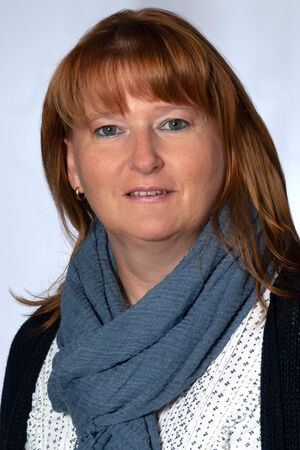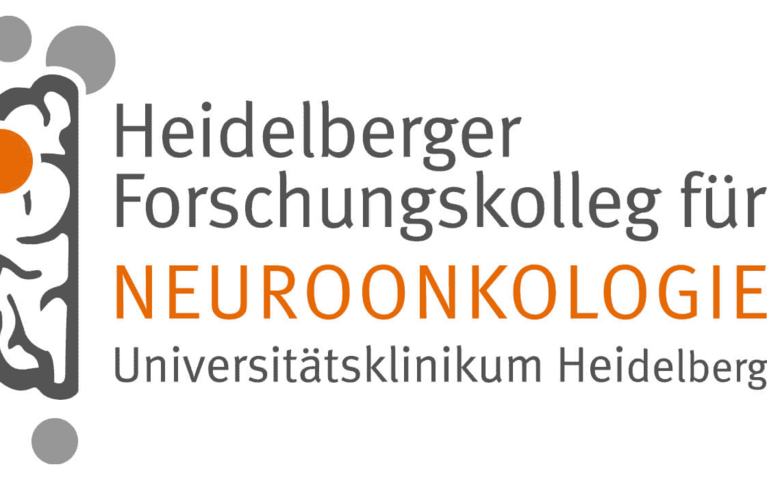Else Kröner Research College
News
We congratulate the fellows of the 2nd funding phase of our Heidelberg Research College for Neurooncology and wish them every success in realising their projects:
Fabian Allmendinger, Neuroradiology Patient-derived neural organoids for the determination of radiation resistance |
Henri Bogumil, Neuropathology Establishment of amplification-free single-cell nanopore sequencing and implementation on scientific and diagnostic issues |
Leon Kaulen, Neurooncology Deciphering and targeting the molecular hallmarks of CNS lymphomagenesis |
Julius Maximilian Kernbach, Neuroradiology Local resting-state fMRI signature predicts oncological outcome in glioblastoma patients: A radiomics-based machine learning analysis |
Mustafa Ahmed Mahmutoglu, Neuroradiology Transformer-based automated volumetric assessment and non-invasive analysis of molecular characteristics in pediatric brain tumours |
Amin Nohman, Neurosurgery The integration of anatomo-functional data in molecular analysis and drug screening |
The scholarship is for scientific qualification with a total of two years' leave of absence to carry out a research project. The two years of research are interrupted by one year of clinical work in order to integrate targeted clinical training into the funding programme and to keep an eye on the overall development of the fellows.
Heidelberg Research College for Neurooncology
Since autumnThe Else Kröner Research College "Heidelberg Research College for Neurooncology", funded by the Else Kröner-Fresenius Foundation since autumn 2019, has set itself the goal of expanding existing interdisciplinary, patient-oriented research by recruiting and releasing physicians to conduct research in the laboratories of the joint neurooncology programme at Heidelberg University Hospital (UKHD), the Heidelberg Medical Faculty (MFHD), the German Cancer Research Centre (DKFZ), the National Centre for Tumour Diseases Heidelberg (NCT) and the Hopp Children's Tumour Centre Heidelberg (KiTZ) and to develop the long-term structure of the programme.
In collaborative and application-related projects, topics for understanding and overcoming resistance in brain tumours, derived from clinical and diagnostic studies and cohorts, are promoted in the research groups of molecular genetics, cell biology, immunology, radiobiology and imaging. In addition to promoting outstanding young doctors ("clinician scientists"), the Research College for Neurooncology represents a nucleus for the further development of structured, interdisciplinary dialogue and basic interdisciplinary training. A multi-level mentoring system, an interdisciplinary research project and a high-quality training programme for the fellows are the main components of the research college.
Support programme
Project structure of the Research Training Group
The project structure of the Forschungskolleg is made up of the following three pillars:
- Pillar 1: Personal mentoring
Each fellow is assigned an individual mentorship. To further develop their own research projects, a support committee consisting of a clinician, a scientist and a clinician scientist from the Heidelberg Neurooncology Programme is also put together together with the fellows to accompany the progress of the project.
- Pillar 2: Research project
During the funding period, the fellows develop their own research project in the field of neuro-oncology, neuropathology, neuroradiology, paediatric neuro-oncology and/or radiotherapy. Research leave totalling 2 years is guaranteed for this.
- Pillar 3: Training
The fellows will have access to existing elements of a cross-focus and cross-institutional training programme as well as new elements developed within the framework of the Research College for Neurooncology.
Research supervisor
Neuropathology
Pauline Göller
Felix Sahm
Neuroradiology
Sabine Heiland
Martin Bendszus
Neurooncology
Sevin Turcan
Wolfgang Wick
Radiotherapy
Tanja Eichkorn
Jürgen Debus
Neurosurgery
Christel Herold-Mende
Sandro Krieg

Contact us
Dr Dorit Arlt
Dorit.Arlt@med.uni-heidelberg.de
